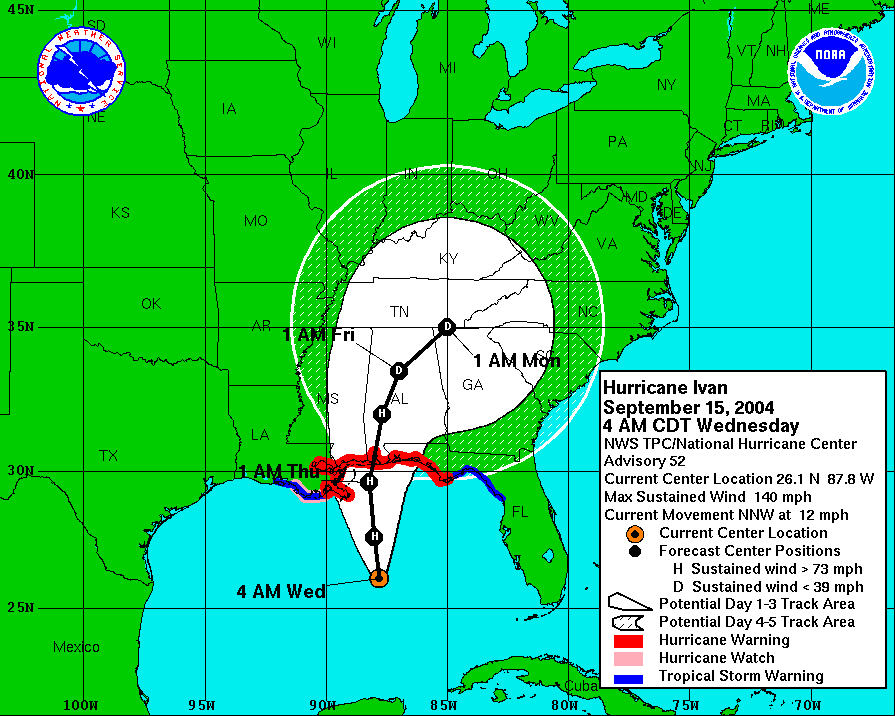the cost of Ivan
When Ivan does eventually come ashore and starts to knock things down, we will calculate the cost of picking them up again. But Ivan is already costing our economy tremendously. The Keys were evacuated nearly a week ago as were many other areas that now have very low probablities of experiencing the storms full force. Better safe than sorry, I guess
Each of those 100s of thousands / millions of evacuations has an a opportunity cost that I can't help but believe outweighs the increase in spending due to increased fuel, food and materials sales. Furthermore I am not sure that the spending in most cases is an actual increase, but rather a redirection. If most of the people who have to evacuate are in the lower income brackets (which is nearly assured), then the money they are spending on lumber and fuel would likely have been spent on other nearly as essential things anyway.
As far as I know we have no way of knowing whether our increased ability to forecast storm tracks and disseminate those forecasts actually saves money. I do expect that it save lives and perhaps that is enough...
One final thought - What if New Orleans and the lower Mississippi take this large storm on the chin? Will this be the event that finally overwhelms the Army Corp and send the Mississippi down the Atchafalaya?
